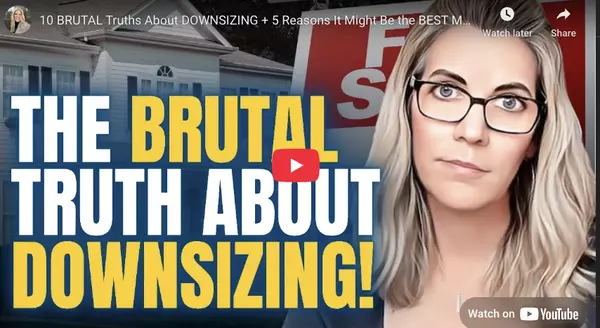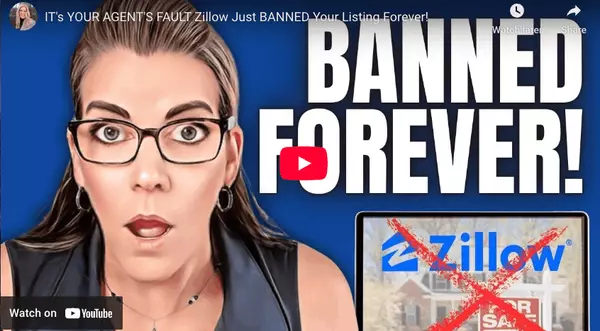Secrets of Surviving a Lawsuit When You Sell Your Home
Secrets of Surviving a Lawsuit When You Sell Your Home
Hey there, it's Kati! If you think you can't be sued, think again. Especially if you believe you've done nothing wrong. It happened to me, and it could happen to you. In this video, I'll share my real-life experience of being sued and provide some tips to help you avoid legal trouble when selling your home.
I've sold almost half a billion dollars in real estate, working with thousands of people. I've seen a lot, but this situation was a tough one. I want to share my story so you can avoid the same fate.
The Beginning of the NightmareYears ago, I was representing a seller on a home that looked great on the outside but had many hidden issues. It took months for the sellers to prepare the house for listing, but we eventually went live. Despite some obvious maintenance issues, we found a buyer. Unfortunately, the first buyers backed out after requesting a $60,000 credit for repairs. We relisted, and another buyer came along, fully aware the house needed some work.
The Lawsuit
Fast forward two years after the sale, and I received the shocking news: I was being sued. The buyers claimed their house was infested with black mold, which they said was hidden during the sale. They also complained about the lack of central air conditioning in the basement, which was absurd since the house had central air conditioning throughout, just not a separate unit for the basement.
The Legal Battle
My husband, an attorney, took charge. It turns out anyone can sue anyone for anything. The buyers, one of whom was a litigious attorney, thought they could scare us into settling. They aimed to exploit our errors and omissions (E&O) insurance, hoping we'd prefer a quick settlement over a lengthy court battle.
What they didn't count on was my husband's legal expertise. He handled the case himself, saving us from hiring expensive legal counsel. The process dragged on for nearly two years, but we stood our ground.
The Outcome
After a lengthy arbitration process, we won. The judge dismissed the case, finding no evidence to support the buyers' claims. Unfortunately, we couldn't recover our legal fees. Despite winning, the experience was stressful and emotionally draining.
Lessons Learned and Tips for Sellers
- Fill Out Disclosures Honestly: Ensure your property disclosures are accurate and truthful. If there's an issue, like a hairline crack that leaks once a year, disclose it. Transparency protects you from future claims.
- Keep Documentation: Maintain detailed records of all maintenance and repairs. This can be invaluable if a dispute arises.
- Consider a Pre-Listing Inspection: While this can reveal issues you need to disclose or fix, it shows you're proactive and transparent, which builds trust with potential buyers.
- Understand 'As Is': Selling a home 'as is' means the buyer accepts the current condition, but you still need to disclose known issues. It doesn't absolve you of liability for undisclosed problems.
- Be Prepared for Legal Challenges: Even if you're in the right, legal battles can be long and costly. Sometimes settling is the lesser of two evils, but always seek professional legal advice.
Final Thoughts
Selling a home is complex, and the threat of legal action is real. By being honest, keeping thorough records, and understanding the legal landscape, you can protect yourself. And remember, just because you think you can't be sued doesn't mean you won't be.
Before you go, don't forget to download our Seller's Playbook. It's packed with tips to help you sell your home profitably, whether you're planning to sell in six months or six years. And check out my next video where I share another unbelievable real estate story.
Recent Posts











